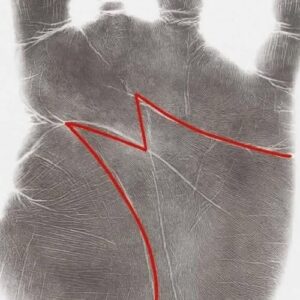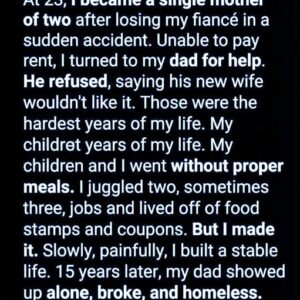When my grandmother Grace passed, the family gathered for the reading of her will. My mother and sister left that day with her house and her car, both keys dangling triumphantly from their hands. When it was my turn, the lawyer handed me a small parcel wrapped in brown paper. Inside was only a single photograph — Grandma and me at the zoo, taken years ago. No note, no explanation, just a cracked frame holding a fading image of us laughing beside the giraffe enclosure.
The humiliation burned quietly. I forced a polite smile while resentment coiled in my chest. Was that all I meant to her? A memory in a broken frame? I drove home in silence, the photo on the passenger seat catching the light like a silent question.
That evening, I decided to fix the frame, perhaps out of stubbornness or nostalgia. As I pried the edges open, an envelope slipped out from the cardboard backing. It was sealed with a strip of floral tape — the same kind Grandma used on every note she left around her house. My breath caught. Inside were several stock certificates, a small brass key, and a short message written in her familiar, looping handwriting:
“For when you’re ready.”
My hands trembled as I read the words again and again. I barely slept that night, my mind racing between confusion, hope, and disbelief.
At sunrise, I went to the local bank, the one Grandma had visited every Thursday for decades. When I presented the key, the teller guided me to a quiet room and brought out a safe-deposit box with her name engraved on the side. Inside were neat stacks of documents — property deeds, dividend papers, and decades of careful financial records. She had saved and invested quietly, methodically, her entire life.
At the very bottom lay the deed to the land beneath Grandma’s house, the same property my mother believed was hers. In that moment, the truth settled in: Grandma hadn’t forgotten me. She had trusted me. She had simply been waiting to see what I would do when no one was watching.
Her gift became my beginning. I used the assets to buy back the house, restore its worn walls, and reopen its doors. I renamed it Grace’s Corner, turning it into a soup kitchen and small lending library for anyone in need of warmth, food, or company.
Within weeks, people began arriving — the lonely, the tired, the forgotten. Some came for a hot meal, others for conversation or the comfort of books. The laughter that filled the rooms replaced the silence that had long haunted them. Slowly, the house became what Grandma had always been in life: a haven of kindness.
Months later, my sister appeared on the doorstep. Her eyes were tired, her voice softer than I remembered. She asked for help, perhaps expecting money. Instead, I handed her an apron. She stayed. Together, we cooked, served, and listened. The kitchen that once belonged to Grandma became a place of healing — for strangers, for my sister, and for me.
One evening, as I was ladling soup and the sound of laughter floated through the hall, I caught the faint scent of spearmint and Ivory soap. It was the same fragrance that always surrounded Grandma. In that quiet, tender moment, I finally understood. The photograph she left me had never been an heirloom. It was an instruction.
Her true legacy was never the wealth she saved but the love she taught us to share.





